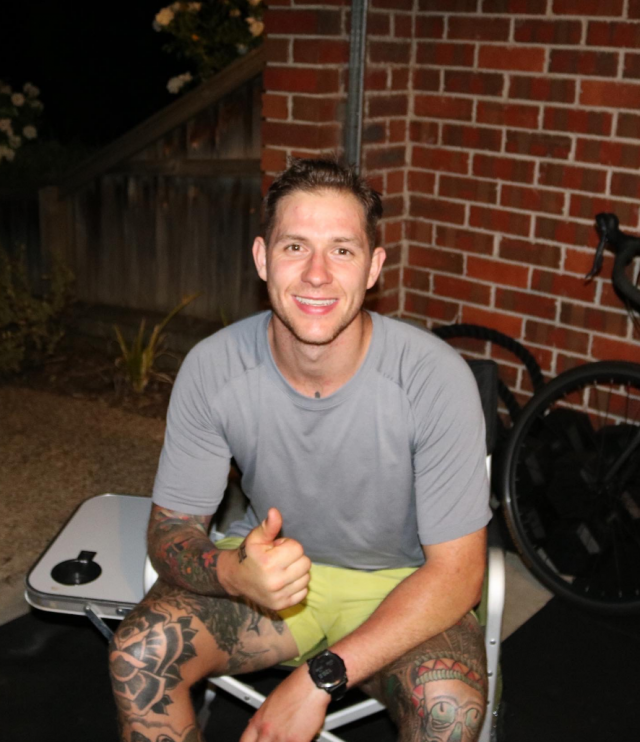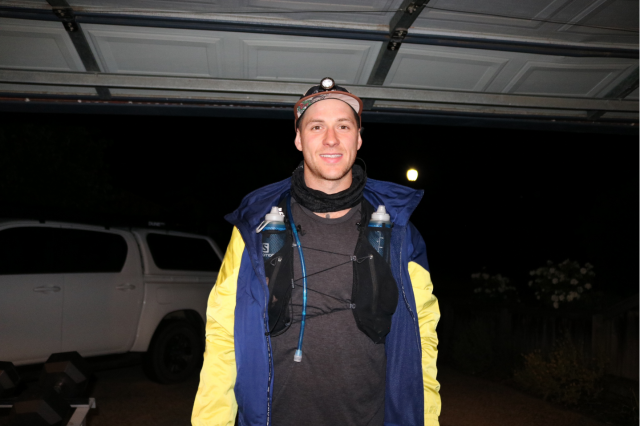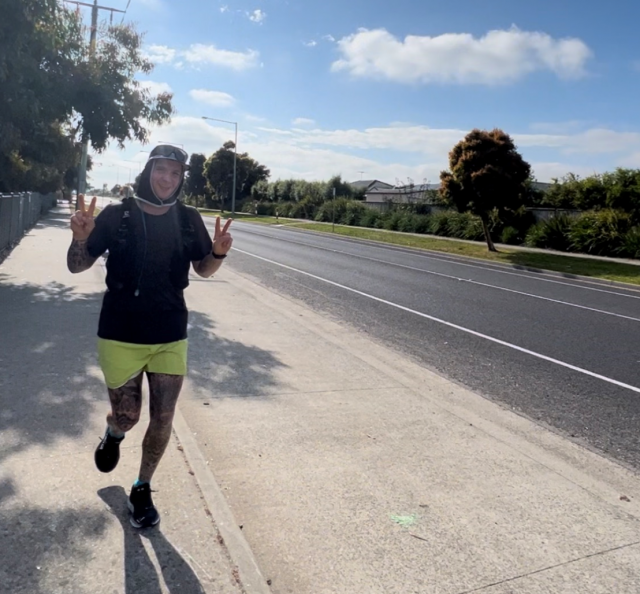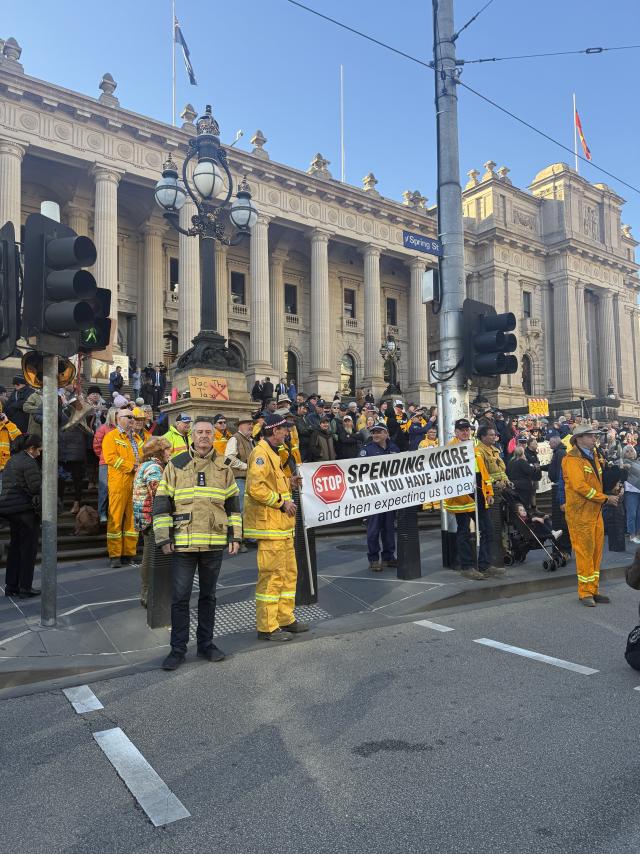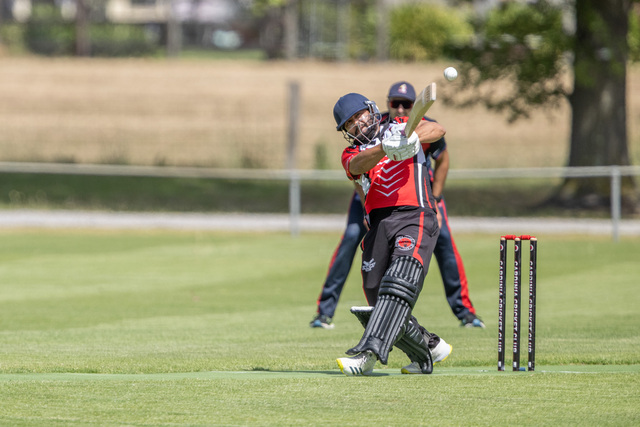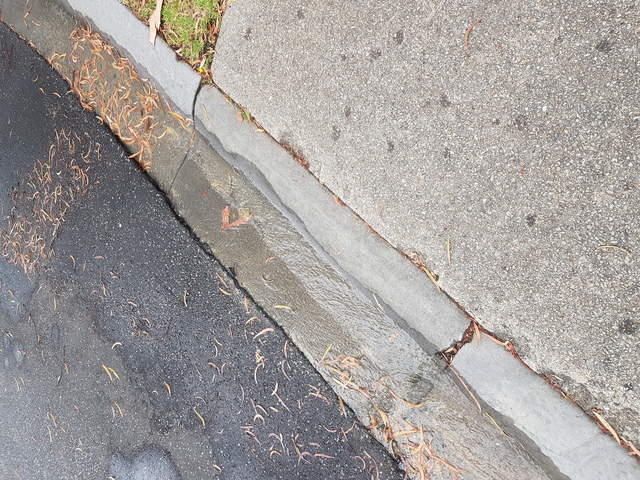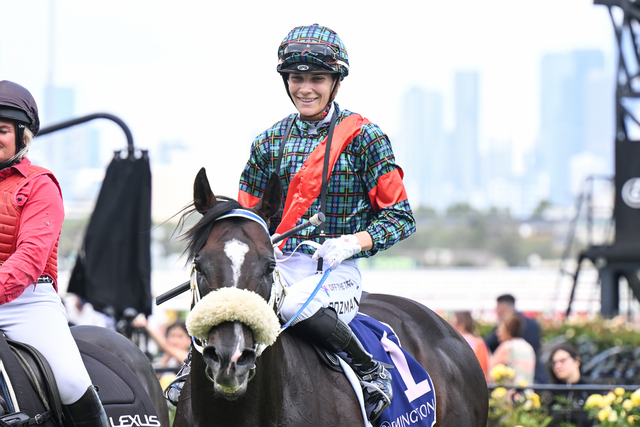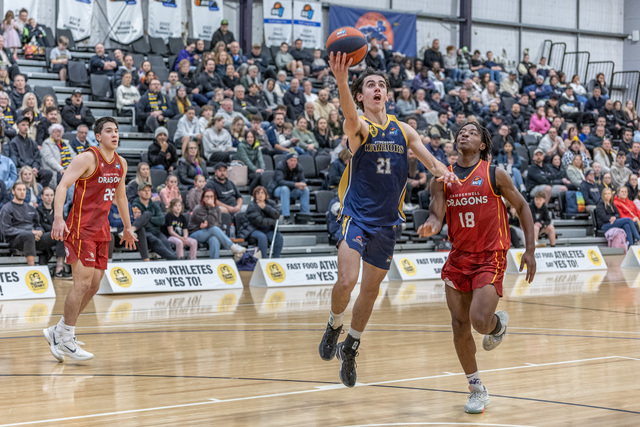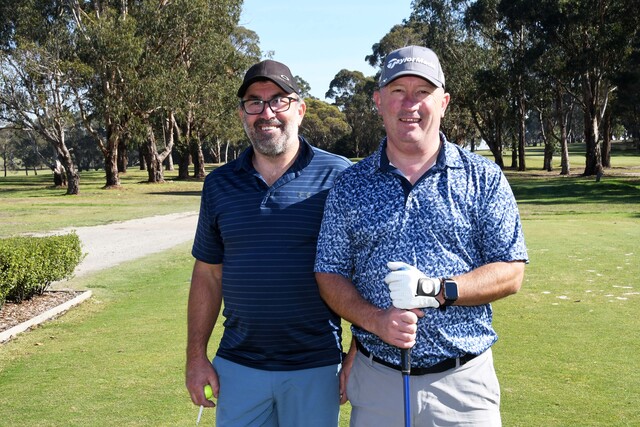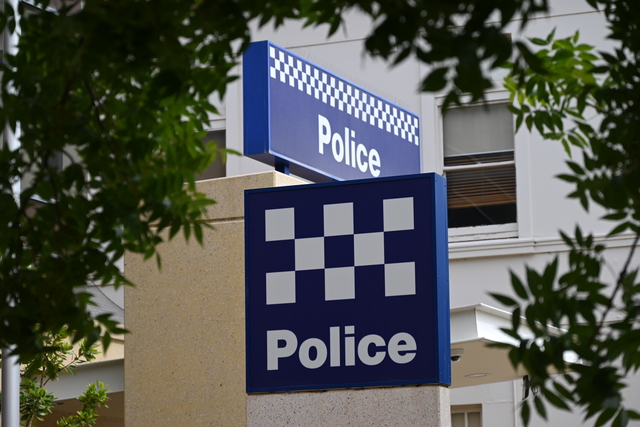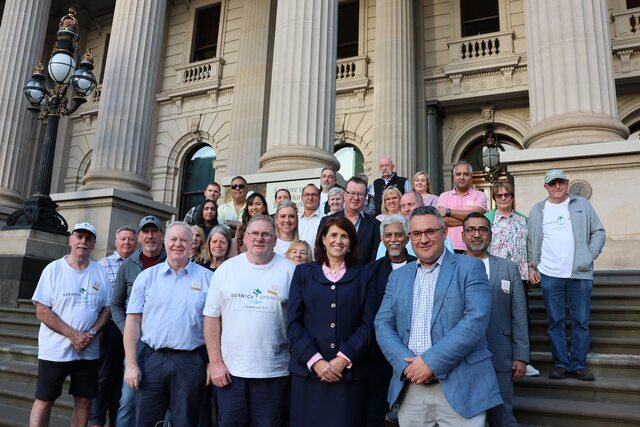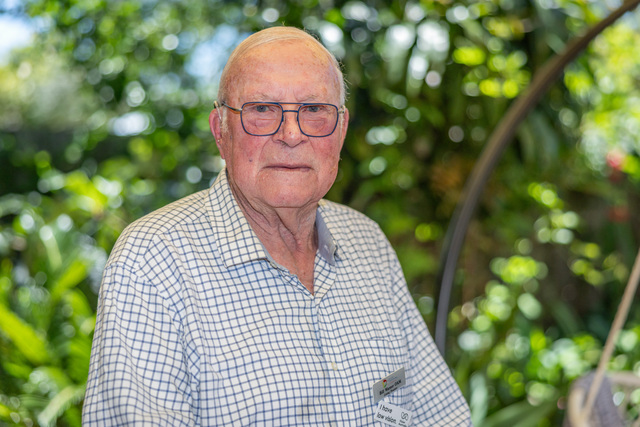Go outside and cover a kilometre on your feet in 12 minutes.
Sound easy enough?
Trying doing that 120 consecutive times in a 24-hour period.
That’s how Nar Nar Goon resident Tyler Joosten saw out 2022.
Your feet will start to blister and swell-up, and muscles will start to cramp, ache and throb.
The legs will feel numb.
Inevitably, dark thoughts will soon follow.
“Why am I doing this?“ “I can’t do this.“ “I need to rest.“ “I hate running.“ “Just stop.“ “It’s not healthy.“ “I’m tired.“ “I’m sore.“
And that’s just scratching agony’s surface.
You’ll want to give in to your screaming body. And you will, because unlike Joosten, you haven’t had an eight-month preparation to condition you for the event.
During that time, Joosten ran a half-marathon and a full marathon – the Melbourne Marathon – in the lead-up.
Initially, the Melbourne Marathon was his big event, but he liked the taste of that and wanted a bigger serve.
He went much bigger.
Unofficial marathons were also inserted into his routine as a regular Sunday run for several weeks and he blended some midnight runs under fatigue with some under the sweltering Melbourne sun.
Priming himself for the run had to fit in around his work as a cabinet-maker at his Pakenham family business, so many of his long runs were done on weekends.
Sundays in late 2022 often meant a five-hour-or-longer run for Joosten.
Hill sprints, cycling and gym-work were the common mid-week regimes.
With a fitness base more so slanted towards strength than endurance, the former Nar Nar Goon and Gembrook footballer enlisted Iron Ryan coach Ryan Brennan-Coulthard to condition him for his marathon and subsequent New Year’s Eve run.
As much as the physical preparation, though, much of the lead-up involved equipping himself with the mental strength to replace the pessimism that would come during the run with positivity.
“No matter what the distance, when you take the body into the unknown, your body goes from feeling fine to not knowing where you are,“ Brennan-Coulthard said.
“It sneaks up on you every now and then.
“Being able to overcome it comes from putting yourself in that situation and doing it at training,
“You find yourself there and sometimes in the past you might have let that mindset take over as well.
“Practice makes perfect so the longer you spend in that mindset of wanting to give up and not, the better prepared he became.
“Sitting in that hurt is what you need to do.
“Setting small goals when times get tough and you have nothing left is important.
“Aim for five minutes, another kilometre, so you have things to look forward to.
“You have to play little games with yourself.
“If you look too far ahead, you will be overwhelmed.“
Ambitiously, Joosten set a target of 150 kilometres.
After drafting plans to run 100 kilometres with his coach, he was ‘concerned’ that would be too ‘easy’ so upped the challenge.
Worse than missing the mark would be finishing with hours to spare. Most important to Joosten was sticking at it for 24 hours.
Falling 30 kilometres short was a by-product of inexorable hiccups, such as heat and blisters, rather than a failure.
Having never previously run beyond 42 kilometres, it was difficult to predict how much distance he could cover.
The immediate lead-up weeks saw him covering 50 kilometres, and he was often beyond 100 kilometres before that.
He would have to cover that and more inside one day to achieve his goal.
“I have never really been a runner but the mental side has always fascinated me,“ Joosten said.
“I’ve got that attitude that when I do something, I will do it all in, so that is where I got to for here.
“I thought I have nothing to lose, I can only try so the brain has always fascinated me with how far we can push ourselves and the self-development – how much can you grow yourself.”
THE RUN
Joosten completed his 120th kilometre just before the stroke of midnight, the boom of nearby fireworks giving a cathartic voice and physical symbol to his burning pain as much as their shimmering beauty that saluted his achievement.
Triple digits were reached after 17 hours as Joosten spent the hot of the day winding his way through a 13 kilometre loop of the Pakenham streets around his mother-in-law’s home.
After covering the first four hours alone, several people did parts of the run with Joosten, their support ensuring he got in two litres of water every two hours plus electrolytes and food, and didn’t get consumed by the pain.
Just 20 minutes of the first 17 hours were spent not moving, intermittent stops at his mother-in-law’s house to refill his pack with water, gels and the other necessary equipment.
At that point, he was struggling to walk alongside the road gutters as the hard, hot black bitumen bit his feet.
After stopping for an hour to assess and rest his blistered feet for the first time, and get massaged, Joosten needed to change up the run.
The loop was getting repetitive and passing his mother-in-law’s house every so often would be dangerously tempting.
So he finished up the run by going up and back to Beaconsfield, pacing himself perfectly to arrive in the dying minute of 2022.
Brennan-Coulthard said it would have been horrible trying to go again after stopping.
“His body would have wanted to shut down,“ Brennan-Coulthard said.
“His feet would have swelled up, more once he took his shoes off, so for him to go again would not have been easy.“
At that point he considered, but decided against listening to music.
“I wanted to be present and see how far we physically can push ourselves once our body shuts down and gives in, can our mind still override and allow us to go?“ he said.
“At one stage I wanted to literally stop, but then when you’re thinking about pulling the pin you’re like ‘no way I’m not stopping’ so you’re mind plays tricks on you when you start shutting down in certain aspects.
“It’s cool and I wanted to experience that so I can tell others you can do extreme things.
“I was like I can keep going and going and going, your body won’t stop you, you just have to keep pushing a lot further than what you can physically go.
“You just zone out and use it as meditation in a way and sort of enjoy it and I was fortunate enough to be able to run because not everybody is able to run.”
By the time his head hit his pillow, he had been awake at 27 hours and counting.
Typically an attention-deflector, Joosten has spent the last week appreciating the milestone and absorbing the love from within and beyond his entourage as he has worn the slowly subsiding residual pain like a souvenir.
“The day was the big grand final to celebrate myself,” Joosten said.
“It was a long prep over the eight months. I had to (train) my mind to not think of it as something I had to do and move on to what’s next: the last week or so I had to sit in the moment more – and I have struggled to soak it in because it is such a big achievement.“
SPEAK AND SHARE
The community return for Joosten’s run is the so far $10,000 he has raised for not-for-profit mental health organisation Speak and Share.
The Mornington Peninsula-based organisation promotes itself as one which encourages tough conversations and challenges the stigma associated with mental health through a preventative, proactive approach.
Speak and Share has regular community events and sports and school programs and has a strong social media community with more than 12,000 Instagram followers.
Joosten has always had an interest in the mental health space, facilitating a safe culture and portraying vulnerability.
Having been victim to some difficult times in the schoolyard himself before finishing in year nine, Joosten places high currency on the work that the organisation does and noted their locality.
Co-founders Nathan Scagliarini, Ben Farish and Mason De Wit are all schoolteachers.
“I’m really big on what they’re about and thought I would make some noise about it and do a fundraiser rather than just going out and doing it for myself, try to involve other people,” Joosten said.
“They’re not a big charity they’re just trying to bring the voice around to what they’re about and give everyone a better understanding.”
Providing awareness and money for something bigger than himself also doubled as keeping him accountable during the trying preparation and taxing run.
Speak and Share goes by the motto: “a problem shared is a problem halved” and co-founder Scagliarini encourages people who are struggling to open up.
“We’re trying to change the culture around mental health and normalise these conversations,“ Scagliarini said.
“We’ve always been big on being vulnerable to lead the way for others to follow, because we don’t want others to go through what we’ve been through – no one should have to go through difficult times alone because the power of the community plays such an important part in our lives.
“No-one has to walk alone or feel like they can’t speak and share.“
Click the following link to donate to Joosten’s GoFundMe page: https://www.gofundme.com/f/walking-towards-greatness

